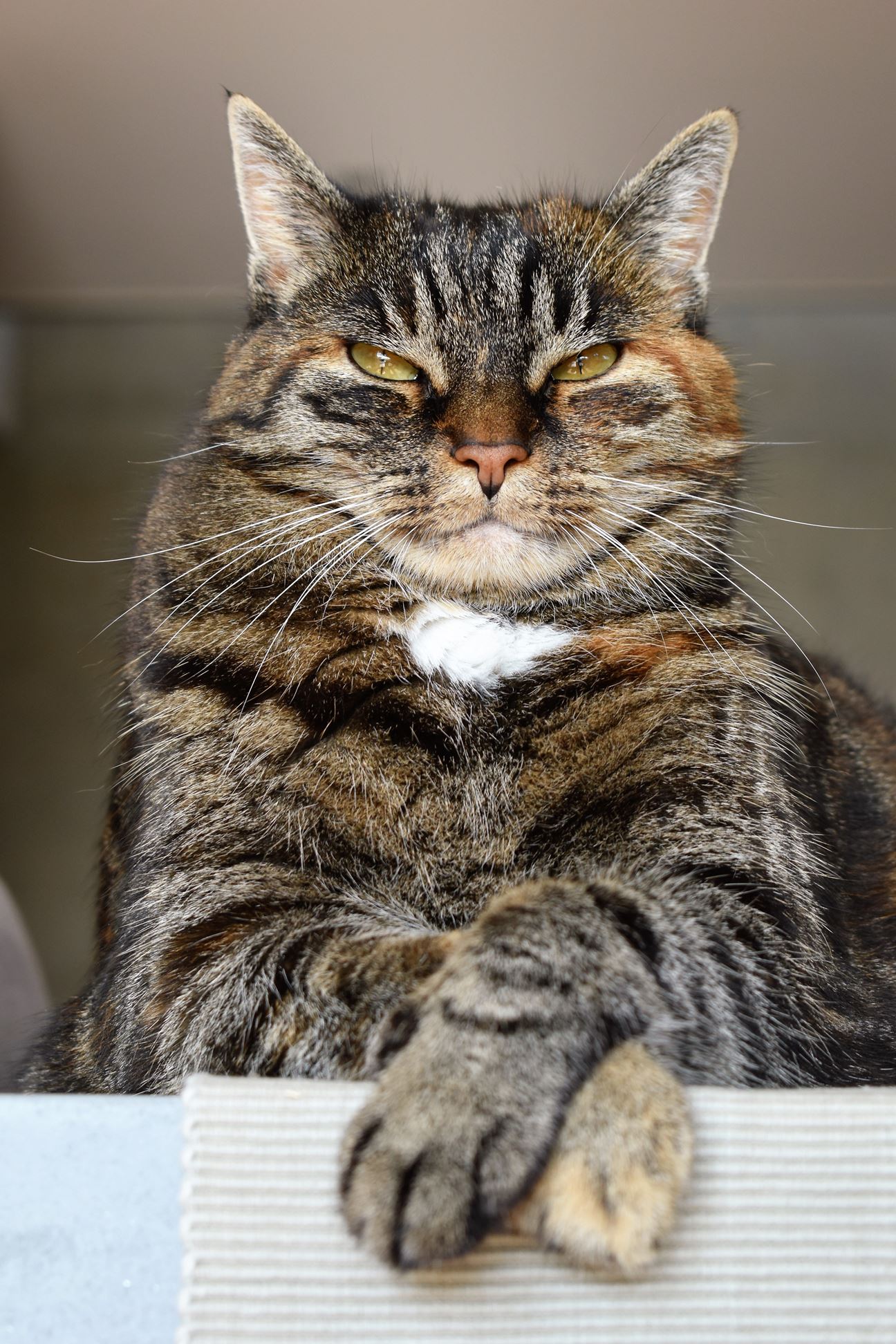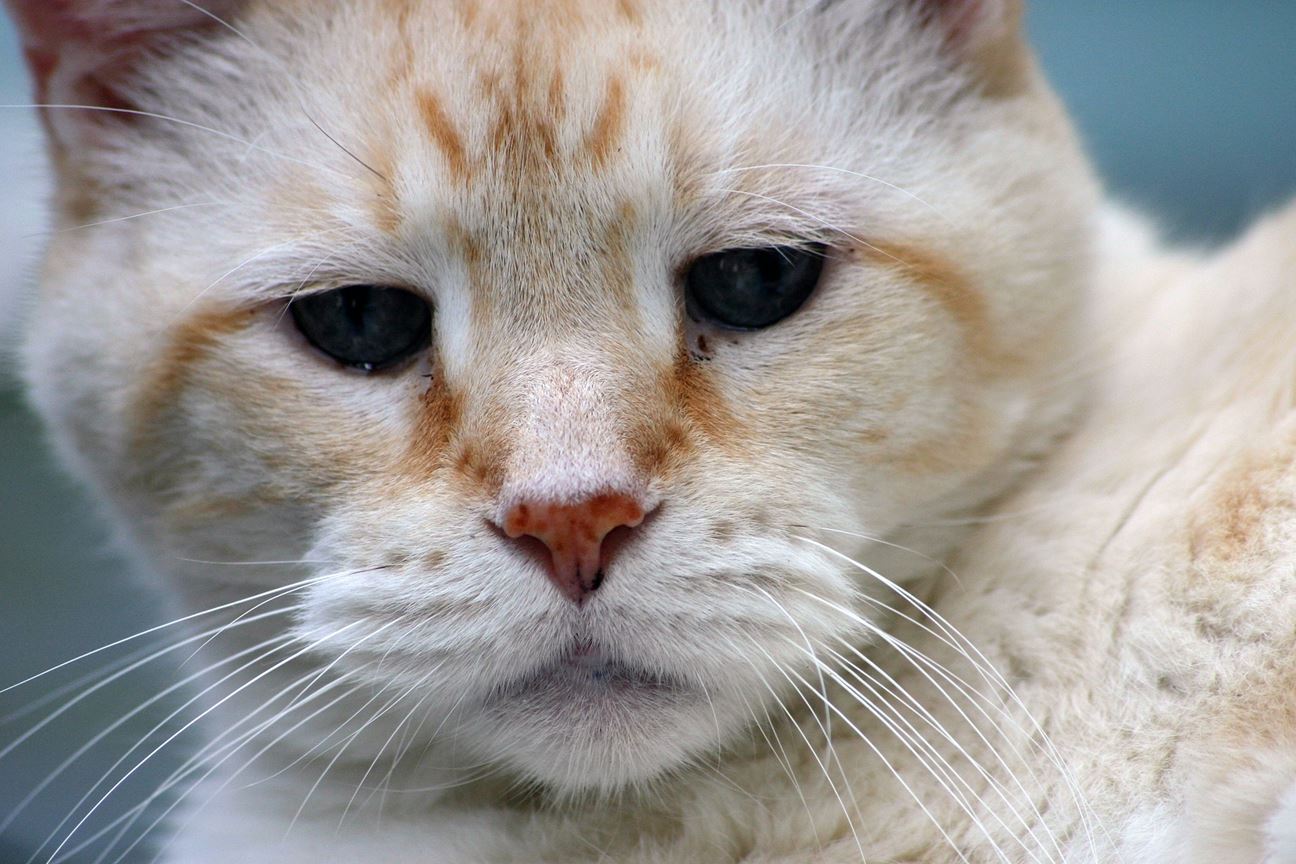Senior cats need extra love and care. Looking for your cat(s)' physical and verbal cues will ensure you provide these golden oldies with the best!
Cats make it very clear that they love their independence. If they could speak, they would first tell us that we do not ‘own’ them, but it is they who chose us. Cats look at their hoomans as friends (well...) sometimes, but they know that the hooman is also the caregiver. And we as cat owners (err...), should take that role very seriously. It’s our duty then to protect and improve the lives of our cats at every stage. Learning about our cats' natural and common behavioural patterns from their young age will help us understand why they act the way they do. This will prepare us to take care of your feline friends as they grow older. As cats age, like with anyone else, their needs and health requirements change, too. Let's learn more!

You've been warned!
When is a cat considered a senior?
Cats live long. An average lifespan of an indoor house cat is about 15 years, and that's just one of its nine lives! However, this is only an average. Cats as old as 16 years, or 18 years, are not uncommon. A domestic cat's life expectancy depends on many factors like nutrition, home care, and timely medical attention. Feline life stages are redefined every few years. The life stages of a cat are:
- Kitten - 0 months to 7 months
- Junior - 7 months to 2 years
- Prime/Adult - 2 to 7 years
- Elderly - 7 to 11 years
- Senior - 11 to 14 years
- Super Senior - 14 years and above
If your cat is above 7 years of age, it is time you start giving extra care and attention to their behaviour, appearance, ability and mobility.
Signs of ageing in cats:
Getting older is a natural process. And like any other living being, cats, too, go through it. The following are some signs to watch out for in an ageing cat:
- Reduced activity: A decrease in playfulness and activity is a sign of ageing. As they age, they are at an increased risk of arthritis which makes it hard for them to move around.
- Has problems climbing: Is your cat having difficulty reaching up its cat-tree? Or is it reluctant to jump to its favourite hide-out spot? Watch out if your cat is avoiding climbing stairs or is hesitant before jumping on the bed/furniture.
- Hearing and vision problems: You should keep in mind that a cat's eardrum will thicken with age, which can lead to hearing problems. Similarly, degeneration of the cells in eyes can lead to progressive retinal atrophy, thus causing vision problems.
- Increased water consumption: If you need to refill the water bowl more than often, it is a sign that the cat may be experiencing polyuria and polydipsia (PU/PD). This could be a sign of underlying complications such as hyperthyroidism, diabetes mellitus, and chronic kidney disease.
- Weakened immune system: With age, the cat's T cells reduce weakening their defence system. Their immune system also becomes slower to respond to diseases.
- Thinner skin: With age, your cat’s skin thins due to infractions and non-painful tearing. The skin will also become more fragile, drier, and less elastic.
- Dental diseases: Problems like bleeding gums, gingivitis, bad breath, or even tooth resorption are common in older cats. This can often lead to loss of appetite.
- Weight loss or gain: Changes in metabolism and movement patterns often lead to either weight loss or gain.
Apart from the ones mentioned above, change in the sleep-wake cycle, avoidance, intolerance, aggressive behaviour, and withdrawal are some other signs to look out for in ageing cats.

look at this paweseomly cute cat - showing off all of its life's experience!
Senior cat care:
Once you have identified signs of ageing in your cat, it is time to provide the cat with special care. The following are some ways you can make your senior cat’s life more comfortable:
- Make sure the surroundings are relaxed and that the cat does not encounter any situations that will lead to feelings of unease and stress. Also, make sure that the cat has easy access to all the resources it needs. If your cat enjoys perching, make sure you help him get up and get down.
- Provide a comfortable bed or a dedicated space where the cat relaxes comfortably. You can also buy your cat an orthopaedic bed for providing extra support to its stiff muscles and aching joints.
- Get the vet to write your cat a senior cat’s diet. Make sure the cat eats high-quality protein. The daily protein intake in senior cats progressively increases as they age. Starting at age 10-12 years, cats should be given diets that will provide them with an average of at least 6-8 grams of protein. Since geriatric cats will be less active, make sure that the food you give them is easy to digest. The meals should be distributed in three to four portions a day.
- Chalk out a daily grooming session. Daily brushing or combing removes superficially loose hair, thus preventing them from forming hairballs that the cat is at the risk of swallowing. Brushing will also result in healthier skin and coat as it stimulates blood circulation and secretions of the sebaceous gland. Also, check for their nails and trim them when necessary.
- Following a dental regime will make sure no problems set in with your cat's teeth. Dental infections can take a toll on your cat’s overall health. One thing you can do at home is brushing their teeth regularly. Keep a check on telltale signs and make sure corrective action is taken. This can include an appointment with the vet, a complete oral exam and X-rays, full cleaning under the gum, scaling to remove tartar build-up and plaque, and polishing the teeth.
- Keep your cat’s weight in check. Your cat’s body shape will tell you a lot about their weight. Look at the cat from the side and from above - check for a tucked-in waist, and also see if you can feel its ribs, spine, and the hipbone, feel if your cat’s tummy is bulging, and lastly check your cat’s tail for any fat build-up.
- Keep your cat inside as much as possible. Do not let them out without supervision.
- Your cat’s litter box will also help you understand if the cat is undergoing any medical conditions. Scoop the box daily and check the urine clamp sizes to rule out life-threatening diseases like Feline Lower Urinary Tract Disease (FLUTD) or Feline Urethral Obstruction (FUO). Don’t ignore blood or worms in the litter box. If you find any of these, make sure you take a picture of it to show it to the vet.
- Lastly, schedule regular visits to the doctor, once every six months at least because, as they say, prevention is better than cure.
These simple steps will help your elderly/senior/super senior cat know that it is loved and cared for. Bonds with these older companions are indeed special!